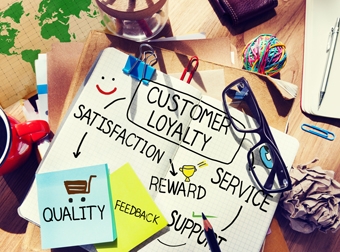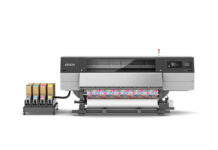High-price sensitivity definition: The degree to which the price of a product affects consumers’ purchasing behaviors.
All too often, sign shops will feed into their price-sensitive customers and scramble to reduce their prices a smidge lower than their competition. And hence, the price war begins.
While there are no casualties in this war, there are customers who will expect low prices from you while still getting the high-quality products and services that you offered pre-dating the price reductions.
And yes, there is such a thing as the point of no return—meaning if you drop your prices to rock bottom (excluding special sales), then you can’t expect customers to stay loyal to you when you bring them all the way back up.
Unfortunately this results in customers perceiving you mainly as a price point rather than a brand. Not good!
But it’s not all doom and gloom! It is possible to bring customers back into the mindset of making meaningful decisions that are based off the value of your offering rather than solely on price.
Here’s how to stop losing business based on price.
Build Your Brand
“If someone likes you, they’ll buy what you’re selling, whether or not they need it,” says KISS guitarist and long-time business opportunist Gene Simmons.
In today’s market, buyers are faced with a myriad of options. The more options they have, the tougher it is for them to make a decision. When this happens, they’ll revert to a brand that they recognize versus one that they don’t know at a cheaper price.
Don’t believe me? Ask yourself if, given the choice between a tasty burger from your local friendly drive-thru or a slightly cheaper burger from an unknown, unpainted food truck, which you’d go for. Most people will opt for what they know.
So while your competitors are focusing on price, you should be focusing on building your brand.
But what is your brand?
Simply put, your brand is how your customers perceive you. Microsoft might wish to be seen as innovators, but instead they’re viewed as the establishment. Google might keep saying that they’re the good guys, but to many people they’re a “Big Brother”-type organization who spy on their users.
To encourage your customers to perceive you as you wish to be perceived, you must represent your key business values via your emails, meetings, social media, Web site—every and any interaction with customers. Even something as simple as your logo can make an impact.
For example, if you stand for honesty, hard work, straight-talking, shoulder-to-the-grindstone-type sentiments, your Web site text and images should get these messages across.
Key takeaway: Is your brand credible? Valuable? Easily identifiable? Work on building your brand and differentiate your key business qualities from your competition.
Once you’ve defined your brand, make sure that your Web site and social media reflect those values.
A clearly defined and communicated brand is memorable, demonstrates integrity, and will help you win and keep customers.
Change the Argument
While it may be tempting to give into the notorious price-cutting war, it’s time for you to take a stance on where you stand as a business owner.
As a sign shop (or indeed as any small business owner), you have a choice about how you position yourself:
- The cheapest price
- The best product
- The best service
It’s not possible to be all three. If you’re not going to be the cheapest priced option, then you need to up your game in another area.
If your products are not unique in some way, then you need to offer customer service that far exceeds what the customer would receive from your competitor.
Once you have your key area of differentiation, don’t hide it—if you’re the first to market (in your area) with a revolutionary new sign material, make sure everyone knows about it!
Equally if you take the time to correct (or at least question!) typos in artwork, give advice to customers, make on-site visits, etc., your customers will love you. And if they love you, they’ll happily write testimonials for you.
Get those testimonials on your site and make customer service the center of your pitch.
Key takeaway: Emphasize your strengths and build value. You may be surprised to find that a higher price point may actually increase how valuable your business is perceived.
Start by building a targeted email campaign that can help bring back old customers and turn them into loyal ones. Also work on your marketing messages to hook new customers. (Remember: Your focus is on brand, not price).
The bottom line is you are in competition with other sellers and with your customer’s expectations for what they can get for their money. Start building a brand that is known for its quality, service, and expertise, and you’ll reduce price sensitivity and bring sales back up.
By Sarah Wilson, the Digital Marketing Executive at Customer Focus Software and has over five years of experience writing as a journalist for online publications, blogs, and newspaper editorials. This article originally appeared on the Customer Focus Blog.











